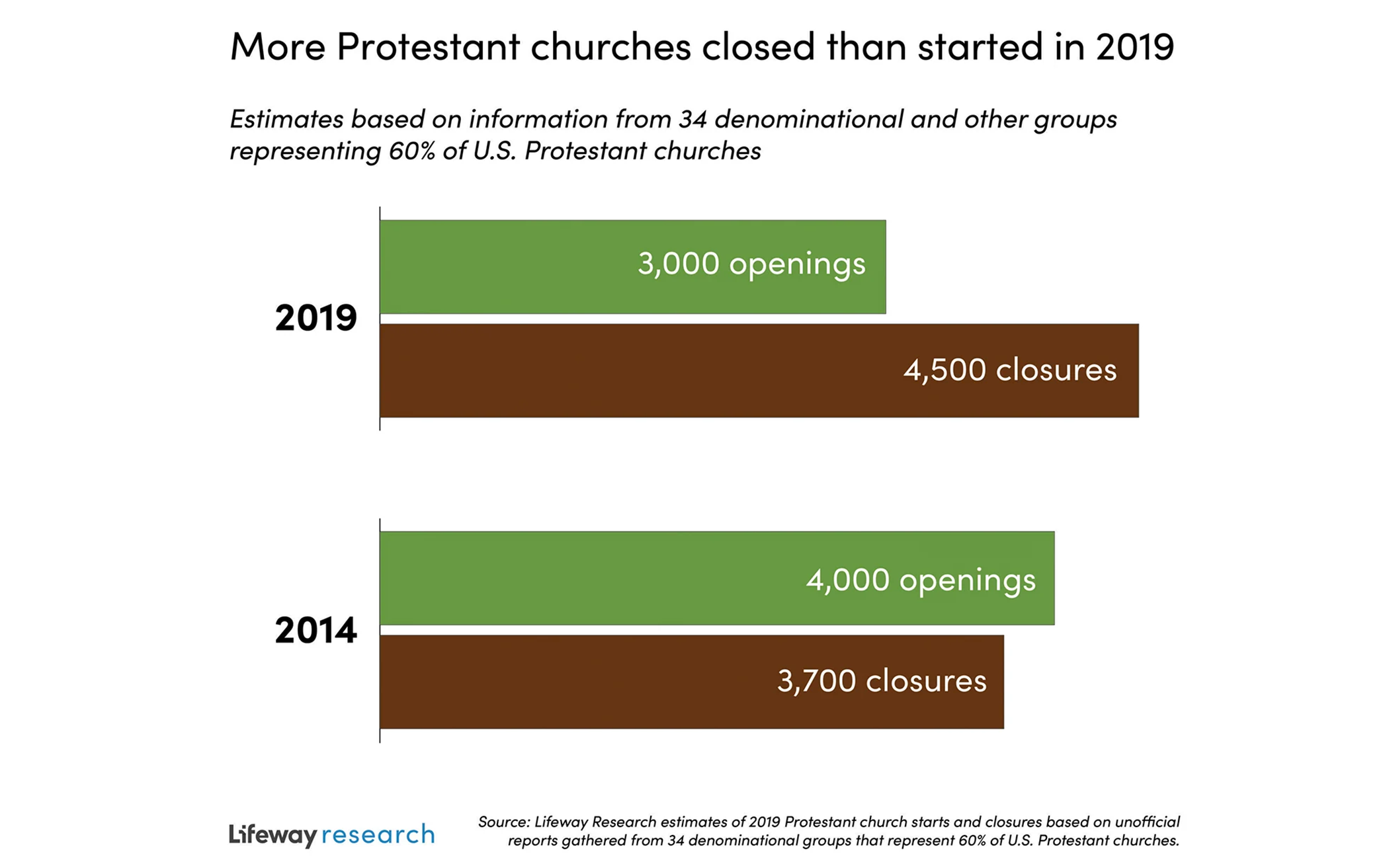The Banner has a subscription to republish articles from Religion News Service. This story was first published on religionnews.com May 26.
A new study from Lifeway Research suggests more Protestant churches in the United States closed in 2019 than opened—continuing a decades-long congregational slide that is only expected to accelerate.
The study, which analyzed church data from 34 Protestant denominations and groups, found that 4,500 churches closed in 2019, while about 3,000 new congregations were started. The 34 Protestant denominations account for about 60% of U.S.-based Protestant denominations.
“Even before the pandemic, the pace of opening new congregations was not even providing enough replacements for those that closed their doors,” said Scott McConnell, executive director of Lifeway Research.
The study also pointed to the hastening of church closures. In 2014, it found, there were 3,700 church closures, compared with 4,500 in 2019.
Scholars cautioned that accurate information on church closings is very hard to come by and also that the numbers of closings are still relatively small. There are between 320,000 and 350,000 Protestant churches in the U.S., so the closure of 4,500 churches represents a loss of 1.4%, said Scott Thumma, a professor of sociology and director of the Hartford Institute for Religion Research.
But another study, from the Center for Analytics, Research and Data, affiliated with the United Church of Christ, painted a starker picture.
That study, published in April, estimated that in the decade ending in 2020, 3,850 to 7,700 houses of worship closed per year in the United States, or 75 to 150 congregations per week. It also projected those numbers will double or triple in the wake of the pandemic.
The biggest reason for church closings is a decline in church membership. A March poll from Gallup found that fewer than half (47%) of Americans say they belong to a church, synagogue or mosque, down from more than 70% in 2000.
RELATED: Gallup: Fewer than half of Americans belong to a church or other house of worship
Add to that the increasing cost of maintaining aging buildings and paying for capital improvements and a post-pandemic reluctance to return to in-person services. Some congregations will get creative to continue operating and even thriving by converting their sacred space to mixed use or selling part of their land for housing.
“Church planting is slowing, and the number of closures is growing,” said Ed Stetzer, executive director of the Wheaton College Billy Graham Center. “Yet, the opportunity is still before us."
RELATED: Ontario Church Creating Community Hub in Historic Worship Space; Michigan Church Partners with Nonprofit to Develop Housing, Worship Space
By Yonat Shimron for Religion News Service
Ⓒ 2021 Religion News Service
The Banner has reported a few stories connected to churches facing closure or reinvention since January 2021: “Indiana Church Blessed with Ministry to Seniors Decided to Share Assets When It Was Time to Close ” (July 2);“‘Rebirth’ for a Wisconsin Church” (May 6); “Facing the Realities of When Churches Close” (Jan. 22).
About the Author
Religion News Service is an independent, nonprofit and award-winning source of global news on religion, spirituality, culture and ethics.

